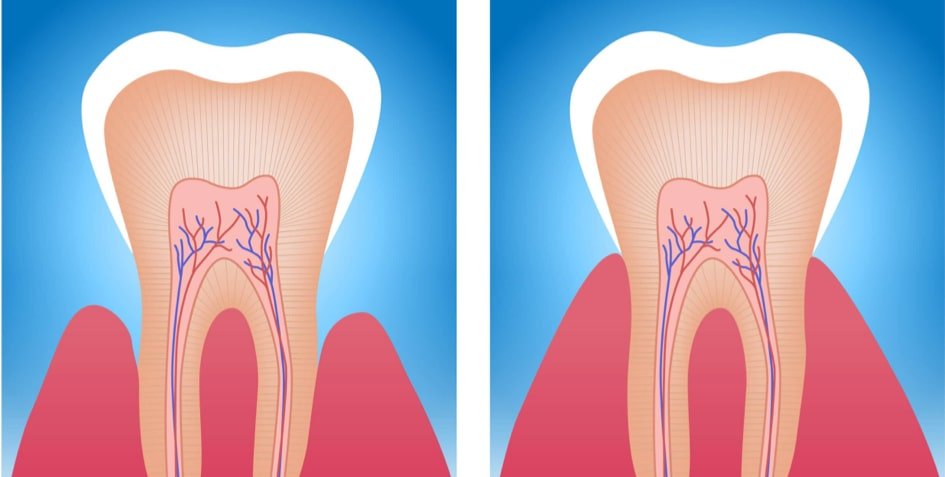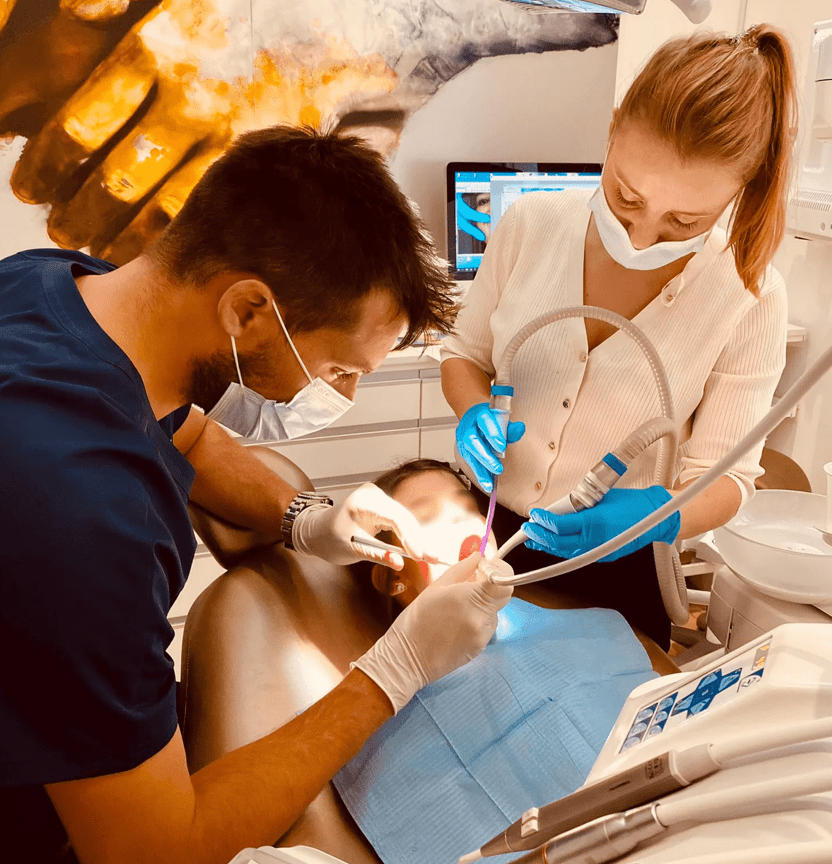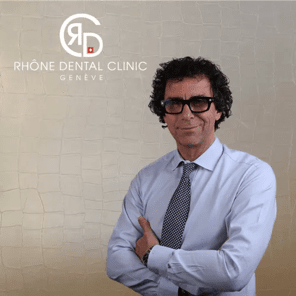Dental hypersensitivity cares and treatments

Dear readers, welcome to Rhône Dental Clinic‘s article dedicated to dental sensitivity.
You will find useful informations about this very common dental problem, but it do not replace a consultation with one of our dentists in Geneva! In a consultation we will take time to answer all your questions about dental hypersensitivity!
What is dental sensitivity ?
The term “dental sensitivity” refers to a condition in which a person feels discomfort, it can be attributed to a sensation of twitching or jolting in the tooth. The intensity of this sensation is variable, so it can be more or less strong. It is caused by the ingestion of very cold food or drinks or, in more complex cases, by the simple contact of the tooth with an object used in the oral cavity. An example would be the bristles of a toothbrush.
WHAT ARE THE CAUSES OF TOOTH SENSITIVITY ?
There are generally three main reasons of tooth sensitivity :
- Enamel thinning. The latter is the outermost layer covering the tooth. Underneath the enamel is the dentin, into which the dentinal tubules branch.
- The exposure of the dentinal tubules, due to the thinning of the enamel, makes the tooth more sensitive.
- Gingival recession. This is the lowering of the gums that causes the root to be exposed. Often the root is not completely covered by the root cementum, so the underlying dentin is directly exposed.
In addition to these reasons, we highlight that 10% of the population suffers from a congenital anatomical anomaly of the tooth. It means that the enamel covering the crown of the tooth and the cementum covering the root of the tooth are not continuous with each other but have a gap. Through this gap, the dentinal tubules are directly exposed to the oral cavity and the external environment.
WHAT ARE THE CAUSES OF ENAMEL THINNING?
Several conditions can affect the condition of tooth enamel. Lightening is mainly caused by :
- High acidity of the oral cavity, i.e. a very low pH. It may be present in patients with gastroesophageal reflux disease.
- Bruxism or nighttime clenching of the teeth leads to enamel deterioration over time
- A very vigorous brushing technique and the use of hard bristles that lead to enamel deterioration,
- Usage of toothpastes with a high abrasive component, such as whitening toothpastes. Always check the abrasiveness index of a toothpaste, which should never exceed 50.
REDUCE TOOTH SENSITIVITY
Several precautions can be taken to deal with dental hypersensitivity when practicing oral hygiene at home. First of all, you should avoid using a too hard toothbrush, and therefore opt for a softer texture so as not to be too aggressive when brushing. Then, an electric toothbrush equipped with pressure sensors can also be very useful, as it warns us when we exert too much pressure.
Another method can be the application of a fluoride varnish or a fluoride foam at your dentist’s office.
Fluorine is a chemical element that strengthens enamel and protects it from sensitivity with almost immediate effects. It is a component often used in toothpastes. A daily use of a toothpaste containing at least 1,450 parts per mole of fluoride can be helpful in the daily prevention of tooth sensitivity. Finally, if the patients suffers from gastroesophageal reflux disease, feel a sensation of acidity in the mouth, it is useful to rinse with water. An half a teaspoon of baking soda powder has been diluted to increase the pH of the oral cavity.
During the initial examination, we will be able to determine the best treatment or advice you need for tooth hypersensitivity in Geneva. Moreover, we can define the treatment plan, the expected duration of treatment and the approximate cost.
Stop by our dental clinic for a visit, or call us at 022 310 50 77 for a consultation with our dentists for your dental hypersensitivity!
Tooth sensitivity is a recurring problem! Our expertise will allow you to no longer suffer from this dental sensitivity that is so difficult to live with!











